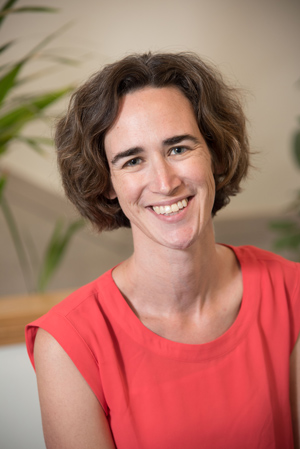Why Arguing in Class Makes for Good Science
SED’s Eve Manz says introducing uncertainty into the classroom improves science education

Introducing complexity and uncertainty into class projects can enhance young students’ scientific learning, SED’s Eve Manz’s research has found. Photo by track5/iStock
“Is that a fair experiment?” “Can the data be interpreted in another way?” “Is this enough evidence to support the claim?” Argument is a critical part of scientific discovery, and these are just three of the questions that scientific peers regularly ask. But meaningful arguments like these rarely trickle down to science classrooms. Eve Manz wants to change that.
“I deeply believe that students develop a better understanding of scientific ideas when they’ve been given a chance to think about them, talk about them, and argue with each other about them,” says Manz.
Engaging students in lively scientific arguments is something Manz, a School of Education assistant professor, enjoyed doing 12 years ago as a third grade teacher, and it’s now the focus of her scholarly research. One of several recent papers she’s published on the topic won the Review of Research Award from the American Educational Research Association last year. Manz’s research explores ways that K–12 teachers can create classroom environments in which students argue meaningfully with one another—actually trying to convince classmates of their points of view, rather than merely going through the motions of an argument to meet a class requirement. Her work shows that introducing complexity and uncertainty into class projects can help, rather than hinder, young students’ scientific learning, in part because it gives them something interesting to argue about.
“When [teachers] typically set up a plant experiment for elementary students,” says Manz, “we help them put one plant in lots of light and one plant in the closet. We tell them we’re going to measure the height of the plant, and—lo and behold—the plant that’s grown in the light does better.”

But setting up such an obvious experiment, she says, isn’t a true reflection of the scientific process, and it doesn’t give students much to talk about. If students are instead asked to help design an experiment to test how much light plants need, they can debate the same types of things scientists would discuss in a similar situation: what kinds of plants to use (and how many), how much light to give each plant, and how best to measure plant health.
“We should engage kids in more of those kinds of decisions,” Manz says. “If we make the problem they’re arguing about too easy and too simple, they aren’t actually going to see that argumentation is useful to them.”
Giving students practice sharing their points of view and backing them up with evidence, says Manz, helps them understand how scientific knowledge is developed. That will prepare them to become successful scientists or think critically about public debates of climate change, genetically modified foods, energy use, and other important topics.
Helping students develop scientific literacy is among the goals of new science teaching standards that many states have been rolling out in recent years. The new guidelines, including those issued by Massachusetts in 2016, recommend that students spend less time memorizing facts and more time participating in practices—such as planning and carrying out experiments, analyzing and interpreting data, and engaging in evidence-based arguments. The standards are based on widespread conviction among science educators that classes are more effective when they resemble the work of actual scientists.
Manz is confident that introducing uncertainty into the classroom will improve science education, and she wants to offer teachers detailed advice on how to do it. Her research agenda in the coming years will focus on identifying specific types of uncertainty that spark useful classroom discussion. In her observations of third grade classrooms, for example, she has found that students have very productive conversations when asked to think about ways their experiments do and do not represent phenomena in the real world. Third graders are particularly good, it turns out, at detecting an experiment’s shortcomings—something that successful scientists need to excel at, too.
Comments & Discussion
Boston University moderates comments to facilitate an informed, substantive, civil conversation. Abusive, profane, self-promotional, misleading, incoherent or off-topic comments will be rejected. Moderators are staffed during regular business hours (EST) and can only accept comments written in English. Statistics or facts must include a citation or a link to the citation.